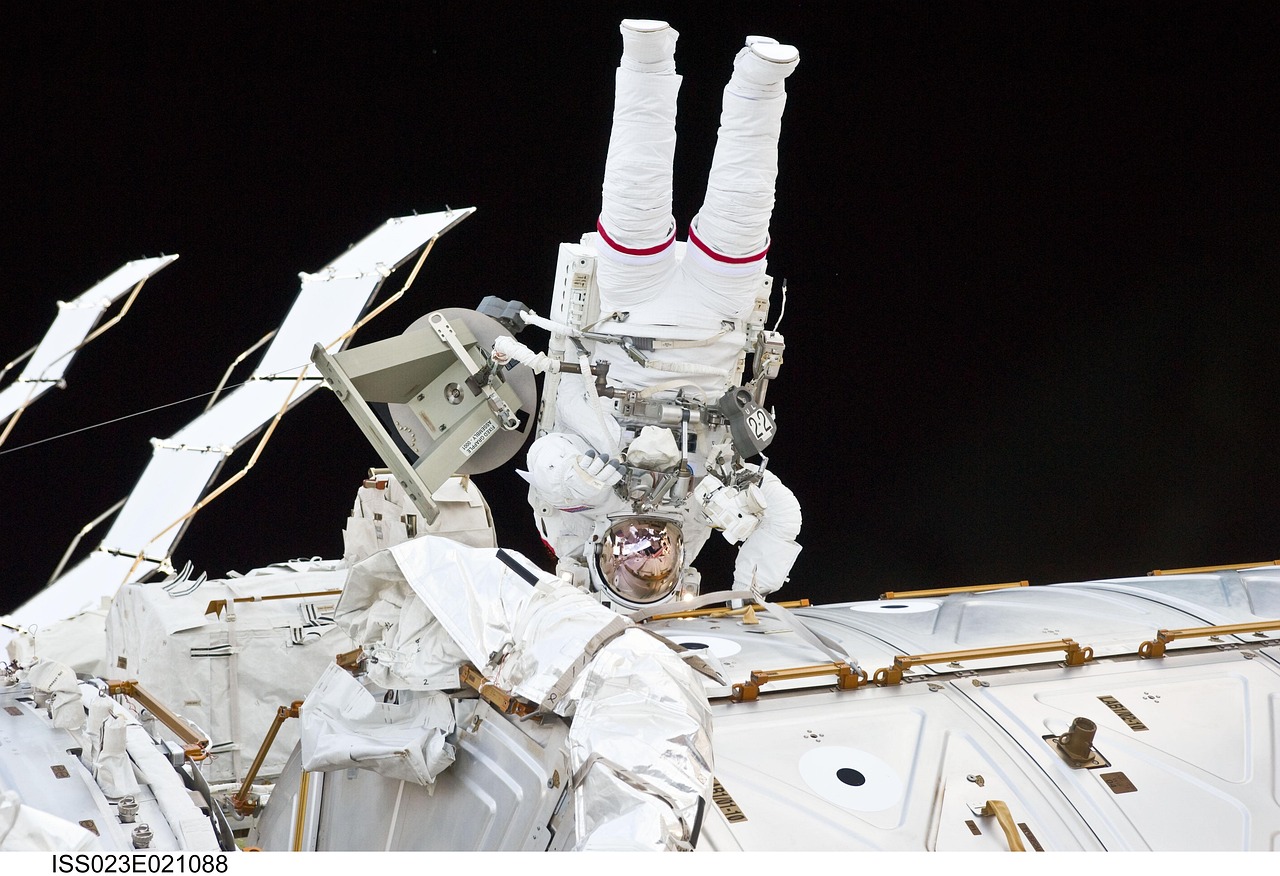News release
From:
Title: Space travel alters gene expression in white blood cells, weakening our immune system
Subtitle: Results show that immune deficits in space are transient, and disappear back on Earth
Summary: Scientists have shown that the expression of (mostly protein-coding) genes in white blood cells changes rapidly when astronauts reach the International Space Station. This may explain why astronauts appear more susceptible to infectious diseases while in space. Most genes returned to their typical pre-flight level of expression within a few weeks to one year after landing, suggesting that Earth-level gravity is required for the immune system of astronauts to function optimally
Full text: Evidence is mounting that astronauts are more susceptible to infections while in space. For example, astronauts on board the International Space Station (ISS) commonly suffer from skin rashes, as well as respiratory and non-respiratory diseases. Astronauts are also known to shed more live virus particles, for example Epstein-Barr virus, varicella-zoster responsible for shingles, herpes-simplex-1 responsible for sores, and cytomegalovirus. These observations suggest that our immune system might be weakened by space travel. But what could cause such an immune deficit?
“Here we show that the expression of many genes related to immune functions rapidly decreases when astronauts reach space, while the opposite happens when they return to Earth after six months aboard the ISS,” said Dr Odette Laneuville, an associate professor at the Department of Biology of the University of Ottawa, leading author of a new study in Frontiers in Immunology. The research was funded by the Canadian Space Agency.
The researchers studied gene expression in leukocytes (white blood cells) in a cohort of 14 astronauts, including three women and 11 men, who resided on board the ISS for between 4.5 and 6.5 months between 2015 and 2019. Leukocytes were isolated from 4 milliliters blood drawn from each astronaut at 10 time points: once pre-flight, four times in flight, and five times back on Earth.
There and back again
15,410 genes were found to be differentially expressed in leukocytes. Among these genes, the researchers identified two clusters, with 247 and 29 genes respectively, which changed their expression in tandem along the studied timeline.
Genes in the first cluster were dialed down when reaching space and back up when returning to Earth, while genes in the second followed the opposite pattern. Both clusters mostly consisted of genes that code for proteins, but with a difference: their predominant function was related to immunity for the genes in the first cluster, and to cellular structures and functions for the second.
These results suggest that when someone travels to space, these changes in gene expression cause a rapid decrease in the strength of their immune system.
“A weaker immunity increases the risk of infectious diseases, limiting astronauts’ ability to perform their demanding missions in space. If an infection or an immune-related condition was to evolve to a severe state requiring medical care, astronauts while in space would have limited access to care, medication, or evacuation” said Dr Guy Trudel, a rehabilitation physician and researcher at The Ottawa Hospital and professor at the Department of Cellular and Molecular Medicine of the University of Ottawa.
Return to usual levels back on Earth
But there is a silver lining to this cloud: the data showed that most genes in either cluster returned to their pre-flight level of expression within one year after return on Earth, and typically much sooner – on average, after a few weeks. These results suggest that returning astronauts run an elevated risk of infection for at least one month after landing back on Earth.
In contrast, the authors don’t yet know how long it takes before immune resistance is fully back to its pre-flight strength: the length of this period is likely to depend on age, sex, genetic differences, and childhood exposure to pathogens.
The authors hypothesized that the change in gene expression of leukocytes under microgravity is triggered by ‘fluid shift’, where blood plasma is redistributed from the lower to the upper part of the body, including the lymphatic system. This causes a reduction in plasma volume by between 10% and 15% within the first few days in space. Fluid shift is known to be accompanied by large-scale physiological adaptations, apparently including altered gene expression.
Prophylaxis against immune deficits in space
“The next question is how to apply our findings to guide the design of countermeasures that will prevent immune suppression while in space in particular for long-duration flight,” said Laneuville.
“The health of astronauts while in space, especially during long missions, would benefit from detecting both immune dysfunction and sub-clinical inflammation. Early detection provides opportunities for intervention, with the aim to prevent a progression towards severe symptoms.”
###



 International
International



